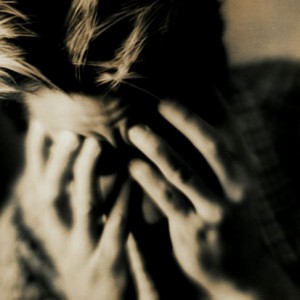 I believe that open and honest struggling and wrestling with God is a sign of faith. I believe that even questioning God and arguing with God reflects a strong inner conviction in his power and goodness.
I believe that open and honest struggling and wrestling with God is a sign of faith. I believe that even questioning God and arguing with God reflects a strong inner conviction in his power and goodness.
Think about it. To demand that God ought to act justly is based solely on our firm belief that God is just. If we don’t believe God is just, we won’t go to him when we see injustice; we’ll go somewhere else. What we believe about God — if we really believe it — is what leads to this kind of honest wrestling.
We believe in God’s omnipotence. There is only one God. He does not share his power with any other god. He made the whole world and everything in it. He is the sovereign ruler over all creation. So, every single thing that happens, good and bad, fair and unfair, happens because God either causes it or allows it. And that leads directly to the really hard questions: Why? Why, God do you allow these things to happen? Why, God, don’t you intervene?
We believe in God’s righteousness. God loves the world he created, he is concerned with what happens to his creatures in the world, and he’s certainly not wicked in the ways he deals with the world. But we’re faced with the reality of terrible cruelty and awful suffering in our world. And if God is omnipotent and righteous, that leads directly to these agonizing prayers: How long is this going to last? God, where are you?
 The prophet Habakkuk doesn’t like God’s answers. He can’t stand what he and his people are having to endure. None of it makes sense to him. So he keeps arguing with God. He keeps coming back to God. He struggles and accuses and complains.
The prophet Habakkuk doesn’t like God’s answers. He can’t stand what he and his people are having to endure. None of it makes sense to him. So he keeps arguing with God. He keeps coming back to God. He struggles and accuses and complains.
“O Lord from everlasting. My God. My Holy One.” ~Habakkuk 1:12
When God’s people in Scripture complain about their troubles, when they lament the injustices of life, when they seek answers to their questions about the evil in the world, they don’t write letters to the editor, they don’t hold court in the coffee shop, they don’t call the talk shows, and they don’t join a campaign. God’s people bring their doubts and their fears, their uncertainties and questions, their complaints and arguments straight to God.
And in the case of the Psalms and Habakkuk, they do so as part of their worship, in the presence of God, in the middle of the congregation.
We’re struggling together here at Central. We’re struggling with the Knebusches, the Newtons, the Pucketts; with Norma, Jack and Barbara, Christi, the Noyes family; and the list goes on and on. We’re struggling. Together. We’re questioning and complaining, trying to make sense out of things that just don’t add up with what we know and believe about our merciful Father. But we’re struggling in faith.
God bless us. God, please honor our faithful lament.
Allan
It won’t ease your pain or make any sense out of things but I saw this and remembered posting something about your three week series on Habakuk. Check my blog 4/9/2008. Like I said, it won’t provide any answers but perhaps a smile.
“Yet I…”
Take care brother.
“Yet I will rejoice in the Lord.”
I remember getting texts messages with those words at 3:18 every afternoon for several months following that series. Probably from a hundred different people over those many weeks. The regularity isn’t there anymore. But I still get it from my Legacy family every now and then. Paul Brightwell texted and emailed me those words when his dad died last year. John West has reminded me of those words last July and August when we were preparing to leave Legacy and move to Amarillo. Mainly, though, it’s when somebody dies. Jesse Villarreal, just last week, texted me those words when his dad passed away. Last week.
We’re in the middle of it here at Central. I was going to save these great teachings from Habakkuk for another year or two. But God’s Spirit is telling me this is the perfect time. And our assembly together here yesterday proved it.
“Yet I will rejoice in the Lord. I will be joyful in God my Savior.”
(The blog entry David’s talking about can be found here: http://davidbyrnes.blogspot.com/2008/04/jesus-card.html)
man it’s really hard to mean it when the dark is pressing in on you – that’s where the ministry of presence comes in. Or at least it does for those of us who are less spiritually mature